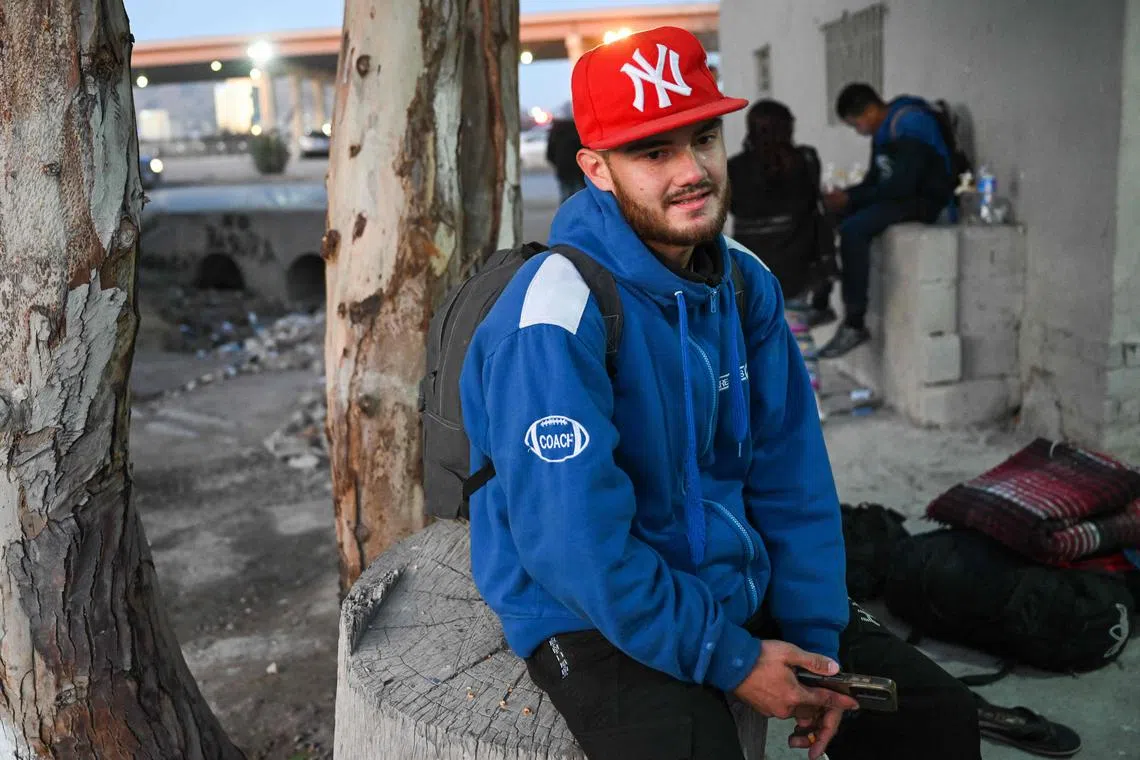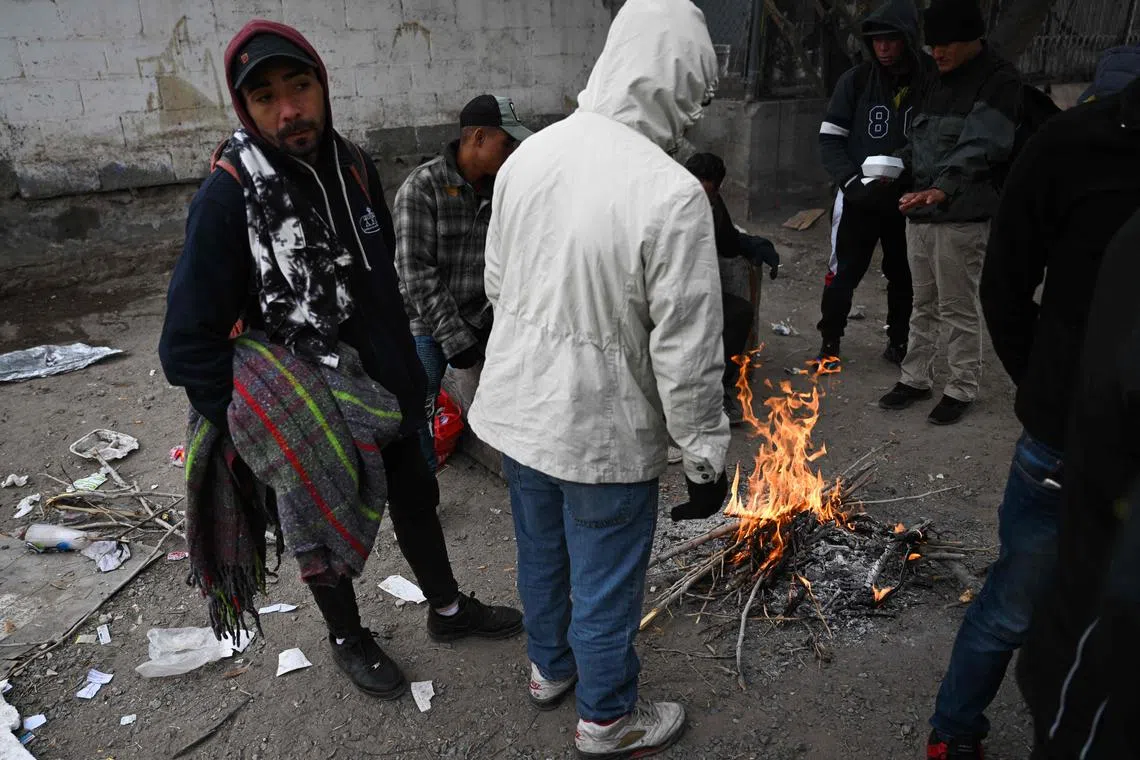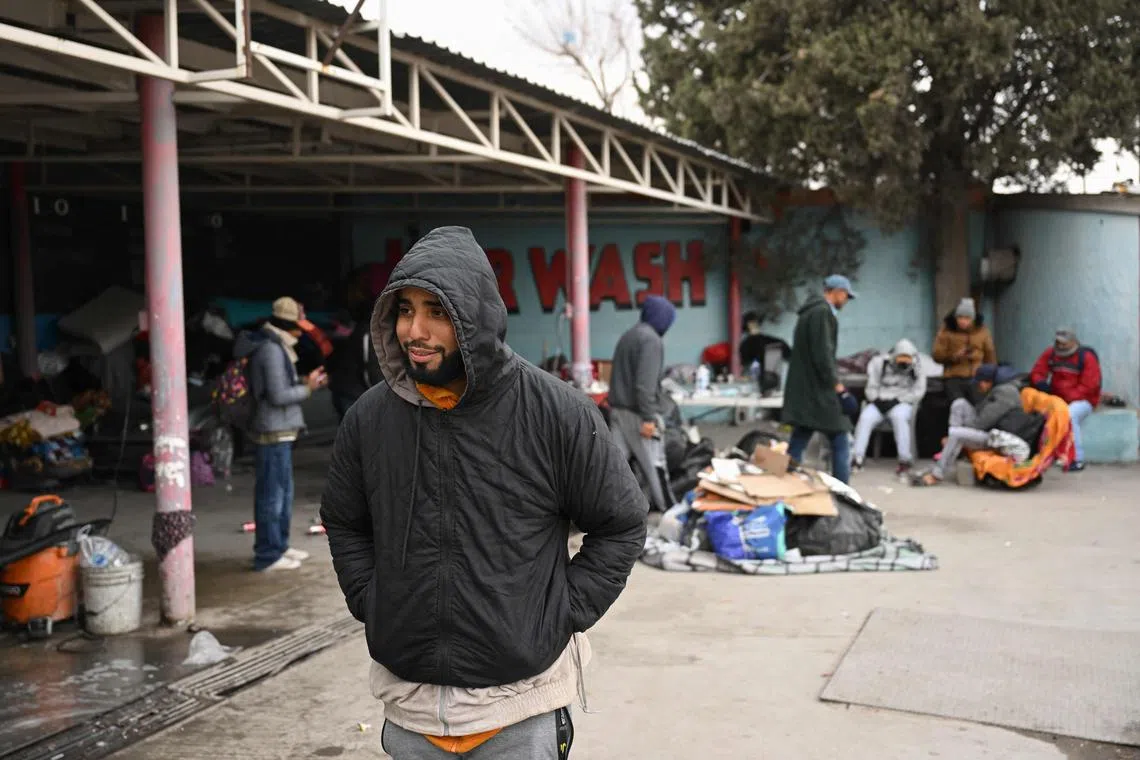'We are human beings': Venezuelan migrants lament US border ruling
Sign up now: Get ST's newsletters delivered to your inbox

Mr Angel Colmenares, a migrant from Venezuela, speaks during an interview about the impact of Title 42 immigration policy, at a shelter in Mexico near the US-Mexico border.
PHOTO: AFP
Ciudad Juarez, Mexico - Hundreds of Venezuelan migrants waiting miserably in Mexico for a chance to cross into the United States, have been left heartbroken by a Supreme Court decision that may prolong a sweeping entry ban.
Fleeing equally dire conditions back home, the migrants had been poised along the Mexico-US border, some for weeks or months, for the expiry this week of a Covid-19-era policy that allowed the US government to summarily refuse entry to millions.
They may have to wait a while longer.
“We are human beings! We are of flesh and bone. How do we make the judges and governors see that?“ Mr Juan Delgado, 38, told AFP at a makeshift camp in Ciudad Juarez on the Mexican side of the border.
Crestfallen Mr Delgado, dressed in a light sweater ill-suited to the near freezing temperatures, was referring to a bid brought before the Supreme Court by 20 US states to halt the expiry of the so-called Title 42.
“Why won’t they give us a chance?“ he added. “They treat us like criminals when all we want to do is work.”
Mr Delgado’s dismay was echoed by 41-year-old Edward Acevedo, who said he had surmounted “many calamities” to get as far as Mexico only to learn of the court’s decision with “great sadness.”
“We came through the jungle, hungry and cold,” he told AFP at an improvised refuge he shares with dozens of compatriots at a pastor’s house.
The number of Venezuelans seeking to reach the United States has soared amid an implosion of the economy under leftist President Nicolas Maduro.
Over seven million Venezuelans have fled their country, according to UN figures, risking life and limb on a long, dangerous trek to what they hope will be a better life.
Many seek to enter the United States, but most – nearly six million – today live in other countries in Latin America and the Caribbean, according to the UN Refugee Agency.
A cold front comes
The conditions in which migrants live along the border speaks to their level of despair.
Fires made in garbage bins serve for heating and cooking, and most of them sleep in the street. The lucky few have a flimsy tent. A cold front looms, promising to drop temperatures later this week to minus 5 deg C.

Migrants from Venezuela keep warm by a fire while waiting for Title 42 to be lifted in Ciudad Juarez, Mexico near the US-Mexico border.
PHOTO: AFP
Many have crossed treacherous rivers with children on their shoulders, others now try to scrape together a subsistence by selling blankets, gloves or slices of pizza.
Others light campfires for tips that in one day can add up to more than a month’s salary back home.
In October, the US announced a humanitarian program to grant entry to 24,000 Venezuelan asylum seekers – but only if they can prove they have sponsorship and fly into the country.
Those entering by land without travel documents would continue to be expelled.
Last week, an appeals court in Washington ruled it was no longer justified to use Title 42 – a Donald Trump-era policy widely criticized as cruel and ineffective – to keep out migrants.
But on Monday, the US Supreme Court granted a last-minute petition from mostly Republican-led states claiming an abrupt end to Title 42 at midnight on Dec 21 would result in an overwhelming gush of migrants.
Chief Justice John Roberts issued an emergency stay and gave the government until Tuesday to make its own case.
This means that theoretically, Title 42 could still expire this week if the court rules in favour of the government. Or it could be prolonged while the court considers the issue in more depth.
‘Give us a chance’
The legal toing and froing is unlikely to dissuade the many thousands of Venezuelans convinced that their only hope for a better life lies abroad somewhere.
Many of those ejected from the United States simply try again. And again.

Thousands of Venezuelans believe their only hope for a better life lies abroad.
PHOTO: AFP
“A salary in Venezuela is US$20. With this, I can buy two chickens. How does one live like that? It is misery,” said Mr Acevedo, who left his wife and daughter behind as he seeks to make a new life somewhere else.
One Venezuelan, who would not give his name, spoke to AFP while squeezing through a narrow hole in the border wall between Ciudad Juarez and El Paso in the United States.
“I cannot wait any more,” he said after learning of the court ruling.
“My wife is dying from a tumour, I need money for medicine,” said the man, making the sign of the cross as he touched American soil. AFP


